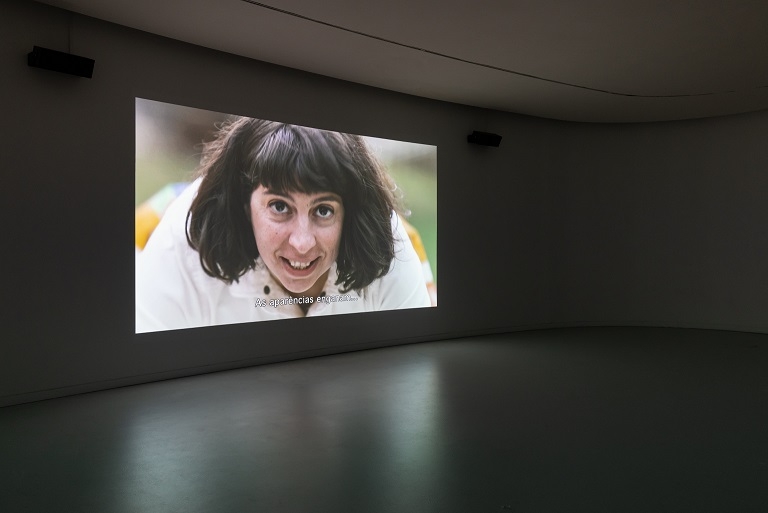The right to be lazy
Priscila Fernandes (b. 1981) has been focusing on researching, exploring and merging a wealth of data related to the practices that, in addition to sapiens (knowing) and faber (making), define us as homo ludens (playful): that who plays, jokes, and seeks pleasure in doing so.
Through children’s mechanisms of thought – via free association, the indistinction between human and animal, animal and vegetable, animate and inanimate, for example – the artist tries to find solutions for building her critical fables.
A century and a half after Paul Lafargue published “The Right to be Lazy” in the French socialist newspaper L'Égalité, liberal societies talk about the “four-day week”, but leisure is, after all, also business (new forms of labour that find expression in the ironic oxymoron “leisure time occupation”); it implies mass unemployment or is sustained by the work overload of the rest of humanity.
The two videos presented here are long, derivative narrations, supposed episodes from a television series for which – amongst Ferris wheels and aeroplanes, rollercoasters and swings, in a constant deconstruction of the seriousness we place on work, art and the sentences we use to manage and even critically think about all this – the artist invokes characters such as Cesariny, Duchamp, Mondrian, and Buren.
Presented alongside the exhibition The Surrealist Castle of Mário Cesariny, these two artistic and critical fables/skits open the doors to dreams and free association which Surrealism treasured as gateways to Freedom.
João Pinharanda
Curator
